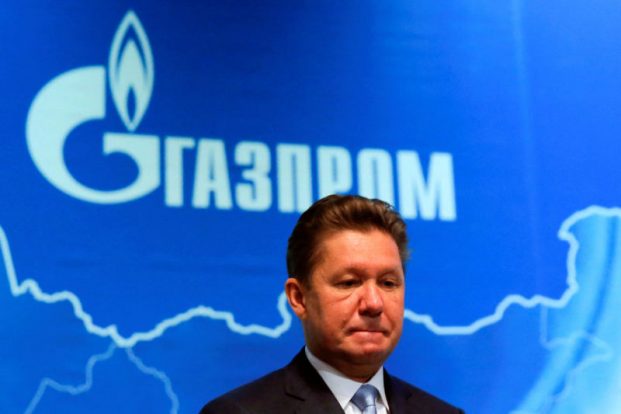Russia’s Gazprom is likely to be considered in default on its debt if it redeems yen-denominated samurai bonds in roubles, Tadashi Maeda, governor of state-affiliated Japan Bank for International Cooperation (JBIC), said on Wednesday.
As of March 2021, JBIC offers guarantees to about 65 billion yen ($550 million) worth of yen-denominated samurai bonds issued by Gazprom, Maeda told parliament.
The economic cost of Russia’s assault on Ukraine has been fully exposed as Vladimir Putin’s sanctions-ravaged government teetered on the brink of its first international debt default since the Bolshevik revolution.
Moscow was due to pay $117 million in interest on two dollar-denominated sovereign bonds it sold back in 2013. But the limits it now faces for making payments, and talk from the Kremlin that it might pay in roubles – triggering a default anyway – which meant even veteran investors were left guessing at what might happen.
One described it as the most closely watched government debt payment since Greece’s default at the height of the euro zone crisis. Others said an emergency ‘grace period’ that allows Russia another 30 days to make the payment could drag the saga out.
“The thing about defaults is that they are never clear-cut and this is no exception,” Pictet emerging market portfolio manager Guido Chamorro said.
“There is a grace period, so we are not really going to know whether this is a default or not until April 15,” he said referring to the situation if no coupon payment is made. “Anything could happen in the grace period.”
A Russian government debt default was unthinkable until what Putin called a “special military operation” in Ukraine began in late February.
It had nearly $650 billion of currency reserves, coveted investment-grade credit ratings with S&P Global, Moody’s and Fitch, and was raking in hundreds of millions of dollars a day selling its oil and gas at soaring prices.
- Reuters, with additional editing by George Russell
READ MORE:
Asia Markets Recover As Oil, Commodities Rally, Rouble Sinks
SoftBank Credit Default Swaps Rise to 2-Year High
Evergrande Executives to Hold First Investor Call Since Default
























